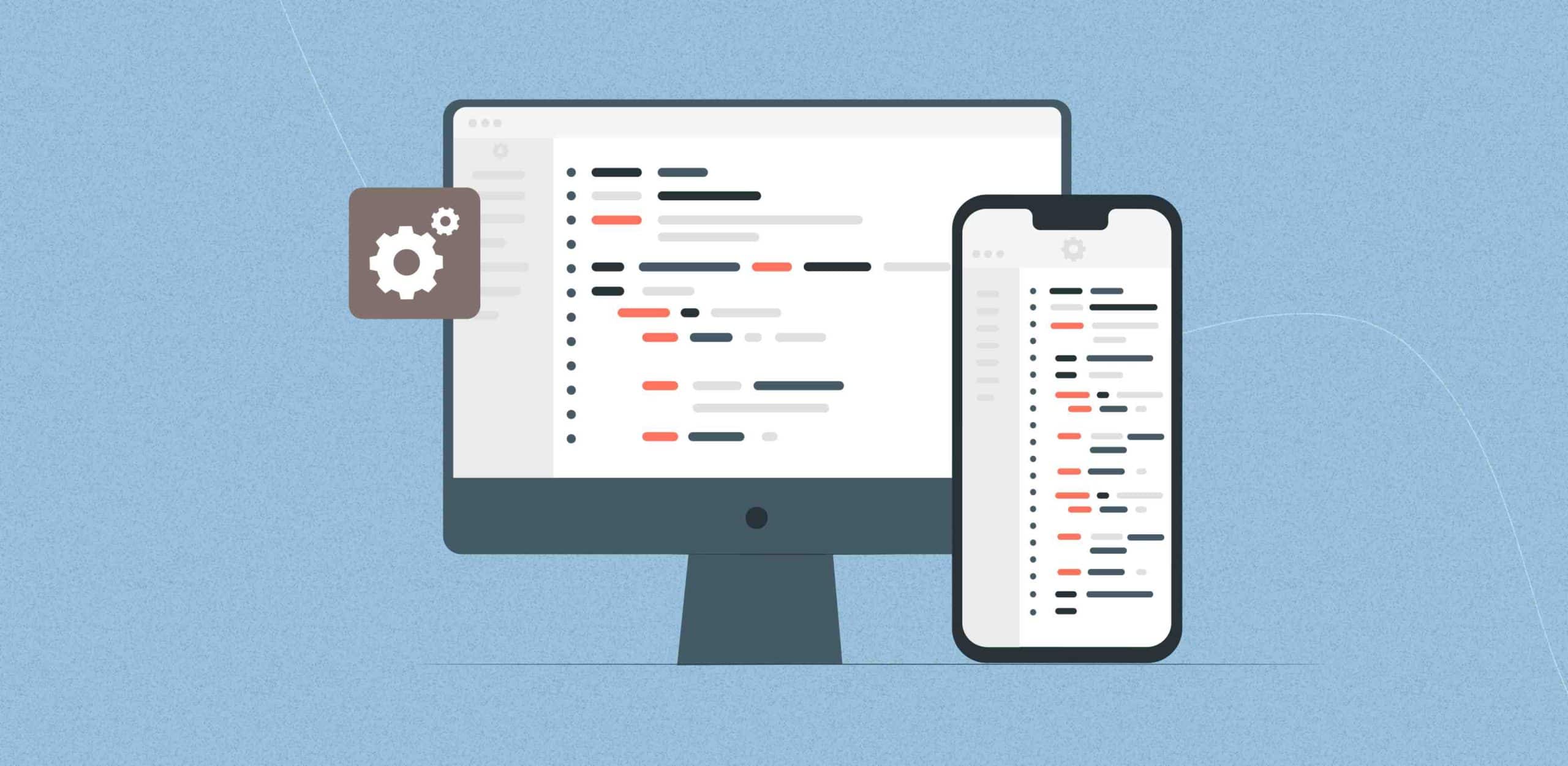Artificial Intelligence (AI) stands at the forefront of innovation, reshaping traditional practices and revolutionizing various sectors in today’s rapidly evolving technological landscape. Its applications span across industries, promising transformative changes and unparalleled opportunities.
In this comprehensive guide, we delve into the profound impact of AI in healthcare, education, finance, retail, and transportation, exploring its diverse capabilities and potential to drive innovation.
AI in Healthcare
In the realm of healthcare, Artificial Intelligence (AI) stands as a beacon of innovation, reshaping the landscape of medical practices and patient care. The integration of AI technologies heralds a new era of possibilities, empowering healthcare professionals with unprecedented insights and capabilities.
AI in Medical Diagnosis and Personalized Treatment
At the forefront of AI’s impact in healthcare is its ability to aid in medical diagnosis and facilitate personalized treatment plans. Through advanced algorithms and machine learning techniques, AI analyzes vast amounts of medical data with unparalleled speed and accuracy. This enables healthcare providers to identify patterns, detect anomalies, and make informed decisions that can significantly impact patient outcomes.
Successful Integration in Hospitals and Clinics
Numerous case studies underscore the successful integration of AI in hospitals and clinics worldwide. From streamlining administrative tasks to enhancing clinical workflows, AI-powered solutions have demonstrated tangible benefits across various facets of healthcare delivery. These implementations showcase AI’s efficacy in improving diagnostic accuracy, reducing operational costs, and ultimately, elevating the quality of patient care.
Driving Efficiency and Enhancing Patient Outcomes
One of the key advantages of AI in healthcare is its ability to drive efficiency while simultaneously improving patient outcomes. By automating routine tasks and optimizing resource allocation, AI empowers healthcare professionals to focus their time and expertise where it matters most – delivering personalized and effective care to patients. This not only enhances patient satisfaction but also contributes to better clinical outcomes and overall healthcare efficacy.
Future Prospects and Challenges
As we navigate the future prospects of AI in healthcare, it’s essential to acknowledge and address the challenges associated with its integration into the complex healthcare ecosystem. From data privacy concerns to regulatory compliance issues, healthcare organizations must navigate a myriad of obstacles on the path to AI adoption. However, by partnering with experienced AI development companies and leveraging AI development services, healthcare providers can overcome these challenges and unlock the full potential of AI to revolutionize patient care.
AI in Education
Artificial Intelligence (AI) is rapidly reshaping the landscape of education, transcending traditional boundaries and offering transformative solutions to enhance learning experiences. As an AI development company, we recognize the pivotal role that AI plays in revolutionizing educational practices and fostering inclusive learning environments. In this section, we delve into the multifaceted applications of AI in education, emphasizing its potential to optimize learning outcomes and cater to individual student needs.
Get to know the 10 best practices to implement Generative AI in eLearning app development.
Personalized Learning Experiences
AI empowers educators to provide personalized learning experiences tailored to the unique requirements and preferences of each student. By harnessing AI algorithms, educational platforms can analyze student data, learning patterns, and performance metrics to deliver customized learning pathways. This adaptive approach ensures that students receive targeted support and resources, maximizing their engagement and comprehension. Whether through AI-powered tutoring systems or personalized learning modules, AI development services facilitate the creation of dynamic educational experiences that adapt to the evolving needs of students.
Optimization of Educational Content
Incorporating AI into online learning platforms and virtual classrooms enables educators to optimize educational content for maximum effectiveness. AI algorithms can analyze vast amounts of educational material, identifying relevant resources, and adapting content delivery based on student interactions. By leveraging natural language processing and machine learning techniques, AI development services enhance the accessibility and relevance of educational content, ensuring that students receive tailored information that resonates with their learning objectives.
Enhanced Learning Outcomes
The integration of AI in education has been shown to significantly improve learning outcomes across diverse student populations. Through compelling case studies, we showcase how AI-driven interventions have led to measurable enhancements in student performance, retention rates, and academic achievement. By providing real-time feedback, personalized recommendations, and adaptive assessments, AI empowers educators to address individual learning gaps and facilitate mastery of key concepts. As a result, students are better equipped to succeed academically and develop essential skills for the future.
Impact on Traditional Teaching Methods
As AI continues to permeate educational practices, it prompts a reevaluation of traditional teaching methods and pedagogical approaches. Educators are increasingly embracing AI-powered tools and technologies to augment their teaching strategies, facilitate collaborative learning experiences, and engage students in innovative ways. While AI complements traditional instruction methods, it also challenges educators to adapt to new roles as facilitators of personalized learning journeys. By embracing AI development services, educational institutions can stay at the forefront of pedagogical innovation and meet the evolving needs of their students.
Transform your business with AI-driven innovation! Connect with us to discuss your AI roadmap.
AI in Finance
In the rapidly evolving landscape of the financial sector, the integration of Artificial Intelligence (AI) has emerged as a game-changer, ushering in a new era of innovation and efficiency. From algorithmic trading to fraud detection and risk management, AI-driven algorithms are revolutionizing traditional processes, empowering banks, investment firms, and insurance companies to stay ahead of the curve.
At the forefront of this transformation are AI development services that cater specifically to the unique needs of the financial industry. These services encompass the creation and implementation of AI-powered tools and platforms designed to streamline operations, enhance decision-making, and improve overall efficiency.
Algorithmic trading
One of the most prominent applications of AI in finance, relies on sophisticated algorithms to execute trades at lightning speed and optimize investment strategies. By leveraging AI’s predictive capabilities, financial institutions can capitalize on market trends and generate higher returns for their clients.
Furthermore, AI plays a pivotal role in fraud detection, enabling financial organizations to identify and mitigate fraudulent activities in real-time. Through advanced machine learning algorithms, AI can analyze vast datasets to detect anomalous patterns and flag suspicious transactions, safeguarding both the interests of financial institutions and their customers.
Risk management
Risk management is another critical area where AI shines, providing invaluable insights into potential risks and vulnerabilities within the financial ecosystem. AI-powered risk assessment models leverage data analytics and predictive modeling to assess creditworthiness, evaluate market volatility, and mitigate potential risks, thereby enhancing the stability and resilience of financial institutions.
However, as AI continues to proliferate in finance, it is essential to address the ethical implications and regulatory challenges inherent in its adoption. Privacy concerns, algorithmic biases, and the ethical use of customer data are among the key considerations that demand careful scrutiny and oversight.
Through insightful analysis and strategic planning, AI development companies navigate the complex intersection of AI and finance, helping organizations unlock new opportunities for innovation and growth while ensuring compliance with regulatory requirements and ethical standards.
The integration of AI in the financial sector represents a paradigm shift in how financial institutions operate and interact with their clients. By embracing AI development services and harnessing the power of Artificial Intelligence, banks, investment firms, and insurance companies can drive operational excellence, enhance customer experiences, and position themselves for sustained success in an increasingly competitive landscape.
AI in Retail
Personalized Shopping Experiences
Demand Forecasting and Inventory Management
AI-Powered Chatbots and Recommendation Systems
Challenges for Smaller Retailers
AI in Transportation
In the realm of transportation, Artificial Intelligence (AI) is not just a buzzword but a catalyst for unprecedented innovation and transformation. With its ability to analyze vast amounts of data and make real-time decisions, AI is reshaping the way we move from point A to point B. From autonomous vehicles to route optimization and predictive maintenance, AI-driven solutions are paving the way for a new era of mobility.
Autonomous Vehicles
One of the most prominent applications of AI in transportation is the development of autonomous vehicles. Through advanced machine learning algorithms and sensor technologies, AI enables vehicles to perceive their surroundings, make decisions, and navigate safely without human intervention. Companies like Tesla, Waymo, and Uber are at the forefront of this revolution, developing self-driving cars that promise to enhance safety and efficiency on the roads.
Route Optimization
AI-powered route optimization algorithms are revolutionizing logistics and delivery services. By analyzing traffic patterns, weather conditions, and historical data, these algorithms can identify the most efficient routes for vehicles to take, minimizing fuel consumption and reducing delivery times. This not only saves time and money for businesses but also reduces carbon emissions and congestion on the roads.
Predictive Maintenance
AI plays a crucial role in predictive maintenance, helping transportation companies anticipate and prevent equipment failures before they occur. By analyzing data from sensors and monitoring systems, AI algorithms can detect early signs of wear and tear in vehicles and infrastructure, allowing for timely repairs and replacements. This proactive approach not only improves safety but also reduces downtime and maintenance costs for transportation providers.
Potential Benefits of AI
The potential benefits of AI in transportation are vast and far-reaching. By reducing accidents, AI can save lives and prevent injuries on the roads. Through route optimization, AI can alleviate traffic congestion and reduce travel times for commuters and businesses alike. Moreover, AI-driven predictive maintenance can extend the lifespan of vehicles and infrastructure, leading to cost savings and improved reliability.
Regulatory and Societal Implications
However, as we embrace AI in transportation, it is essential to consider the regulatory and societal implications of its widespread adoption. Questions surrounding liability, data privacy, and job displacement must be addressed to ensure equitable access and safety for all. Moreover, efforts must be made to bridge the digital divide and ensure that AI-driven transportation solutions benefit everyone, regardless of socioeconomic status or geographic location.
Conclusion
The applications of AI across healthcare, education, finance, retail, and transportation underscore its transformative potential and capacity to drive innovation. As we reflect on the diverse ways in which AI is reshaping industries, we recognize the need for continued integration and development.
Read more to know more on how to choose the right AI development company for your business.
By embracing AI development services and leveraging artificial intelligence to its fullest extent, businesses can unlock new opportunities for growth and prosperity. Contact us today to embark on a journey of AI-driven transformation.
Let’s transform your business for a change that matters.
F. A. Q.
Do you have additional questions?
What is Artificial Intelligence (AI) and how does it impact various industries?
Artificial Intelligence (AI) refers to the simulation of human intelligence processes by machines, particularly computer systems. Its impact on various industries is profound, as it revolutionizes traditional practices by automating tasks, improving decision-making processes, and enhancing overall efficiency.
What are some examples of AI applications in healthcare?
AI applications in healthcare are diverse and include medical diagnosis, personalized treatment plans, drug discovery, and patient care management. Additionally, AI is used for analyzing medical images, predicting patient outcomes, and optimizing hospital operations.
How can AI improve education?
AI enhances education by offering personalized learning experiences, adaptive tutoring systems, and educational content creation. It optimizes online learning platforms, virtual classrooms, and educational analytics, catering to individual student needs and fostering inclusive learning environments.
What are the benefits of AI in the finance sector?
In the finance sector, AI improves efficiency, reduces risk, and enhances customer experiences. It facilitates algorithmic trading, fraud detection, risk management, and customer service, empowering financial institutions to make data-driven decisions and streamline operations.
How does AI impact the retail industry?
AI transforms the retail industry by providing personalized shopping experiences, optimizing demand forecasting, inventory management, and supply chain optimization. It powers chatbots, recommendation systems, and virtual assistants, enhancing customer engagement and driving sales.
What are some examples of AI applications in transportation?
AI applications in transportation include autonomous vehicles, route optimization, predictive maintenance, and traffic management. Companies leading the development of AI-driven transportation solutions aim to reduce accidents, alleviate traffic congestion, and improve overall transportation efficiency.
What are the challenges associated with integrating AI into different industries?
Challenges associated with integrating AI into different industries include data privacy concerns, ethical considerations, regulatory compliance, and the need for specialized AI expertise. Additionally, there may be resistance to change and initial investment costs involved in adopting AI technologies.
What are the future prospects of AI across industries?
The future prospects of AI across industries are promising, with continued advancements expected in areas such as healthcare diagnostics, personalized education, algorithmic trading, smart retail, and autonomous transportation. As AI technologies mature, they will increasingly drive innovation and reshape industries.
How can businesses leverage AI development services to stay competitive?
Businesses can leverage AI development services to stay competitive by harnessing the power of artificial intelligence to optimize processes, improve decision-making, and enhance customer experiences. By partnering with AI development companies, businesses can access cutting-edge AI solutions tailored to their specific needs.
How can I get started with integrating AI into my business or organization?
To get started with integrating AI into your business or organization, you can begin by conducting a thorough assessment of your needs and objectives. Identify areas where AI can provide the most value, and explore available AI development services and solutions. Collaborate with experienced AI developers to design and implement tailored AI solutions that align with your business goals.














